MUC Academics
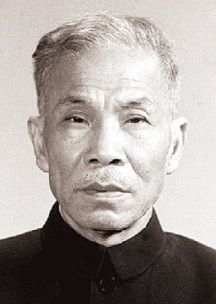
Jian Bozan (翦伯赞)
Lived: 1898~1968
Ethnicity: Uyghur
Hometown: Taoyuan, Hunan Province
Area: Historian
He graduated from Wuchang Commercial College in 1919 and then went to the University of California to study economics. In 1926, he participated in the Northern Expedition's political work as a special commissioner of the General Political Department of the Kuomintang Revolutionary Army. He joined the Communist Party of China in 1937. Under the leadership of the CCP, he had long been engaged in the united front and theoretical propaganda work. After the founding of the People's Republic of China in 1949, he served as the director of the Southwest Research Office of the Research Department of the Central Institute for Nationalities. He was also a Professor and Vice President of Peking University and a member of the editorial board of the "Journal of Historical Studies" and the "Journal of Archaeology." Moreover, he was a member of the Scientific Department of the Institute of Philosophy and Social Sciences of the Chinese Academy of Sciences. He was elected as a member of the First National Committee of the Chinese People's Political Consultative Conference. He was a representative of the first, second and third National People's Congress and a Central Ethnic Affairs Commission member. He went abroad many times to participate in international political and academic activities. Prof. Jian Bozan was rigorous in his academic studies, and his writings are magnificent. Together with Guo Moruo, Fan Wenlan, and others, he prepared for the establishment of the Chinese Historical Society and made outstanding contributions to the transformation of old historiography and the creation of new Marxist historiography. He was cruelly persecuted during the "Cultural Revolution" and died unfairly. He was exonerated in 1978. His main article works include: History Philosophy Course, Chinese History Outline (Volumes 1 and 2), Collections of Chinese History, Collections of Historical Issues, etc., and he was also the chief editor of Chinese History Outline.
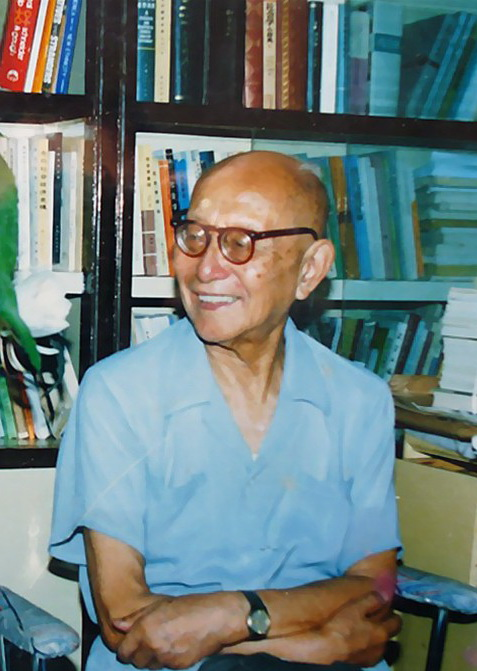
Wu Zelin (吴泽霖)
Lived: 1898-1990
Ethnicity:
Hometown: Changshu, Jiangsu Province
Area: Sociologist, Ethnologist, Anthropologist
In 1913, he was enrolled in Tsinghua University. In 1922, he went to the University of Wisconsin and the University of Missouri in the United States to study, majored in sociology. In 1927, he returned to China after receiving a doctorate from Ohio State University. After returning to China in 1928, he successively served as a professor of Sociology, faculty director, Dean of the Department of Literature, director of teaching affairs in Shanghai Fudan University, Professor of Southwest Associated University, professor and Director the Faculty of Anthropology, director of teaching affairs in Tsinghua University. In 1952, he was transferred to the Central Institute for Nationalities as a professor. In 1953, he served as the professor and curator of the National Cultural Relics Museum of Southwest University for Nationalities. He served as a researcher at the Institute of Ethnic Studies of the Chinese Academy of Social Sciences and a professor at the South Central Institute for Nationalities. Prof. Wu was a member of the China Democratic League and joined the Chinese Communist Party at the age of 88 in 1986. His main works included: Social Regulations, Modern Races, Sociology and Social Issues, World Population Issues, The Life of the Black Seed in the Furnace Mountain, etc. Prof. Wu Zelin connected sociology with ethnology, anthropology, and other disciplines and conducted interdisciplinary research on social phenomena. Social Regulations, written by Prof. Wu, was the earliest sociological work in China devoted to social control issues. Prof. Wu Zelin was also the founder of China's ethnology museum project. Since the 1930s, he has collected cultural relics in ethnic areas and organized ethnic and cultural relics exhibitions. In the 1980s, he presided over the founding of China's first ethnology museum, the Ethnology Museum of South-Central University for Nationalities.

Pan Guangdan (潘光旦)
Lived: 1899-1967
Ethnicity: Han
Hometown: Baoshan, Jiangsu Province
Area: Sociologist, Eugenicist
From 1913 to 1922, he studied at the Beijing Tsinghua Preparatory Class for studying abroad in the United States of America. From 1922 to 1926, he studied in the United States. He successively studied biology at Dartmouth College in Hanover, New Hampshire, and received a bachelor's degree. Later, he studied zoology, paleontology, genetics at the Graduate School of Columbia University in New York and received a Master's degree. He returned to China in 1926 and served successively as the Director of Teaching Affairs of Wusong National Chengchi University, Dean of the Department of Literature of Guanghua University, and Dean of the Faculty of Social Sciences of Wusong China Public University. He taught courses in psychology, eugenics, family issues, evolution, genetics, etc. Since 1934, he served successively as a professor and dean of Tsinghua University's teaching affairs, professor and dean of the Faculty of Sociology of Southwest Associated University. From 1952 to 1967, he worked at the Central Institute for Nationalities as the Director of the Third Office of the Research Department. He has served as a member of the Culture and Education Committee of the State Council, a member of the Chinese Committee of UNESCO, a member of the Second and Third National Committees of the Chinese People's Political Consultative Conference, and a member of the Central Standing Committee of the Chinese Democratic League. His representative works included: Feng Xiaoqing, Genealogy, Introduction to Eugenics, Family Issues in China, etc. His main translation works included Studies in the Psychology of Sex by Ellis, The Theory of Liberal Education by Hao Xuli, The Origin of Mankind by Darwin, etc.
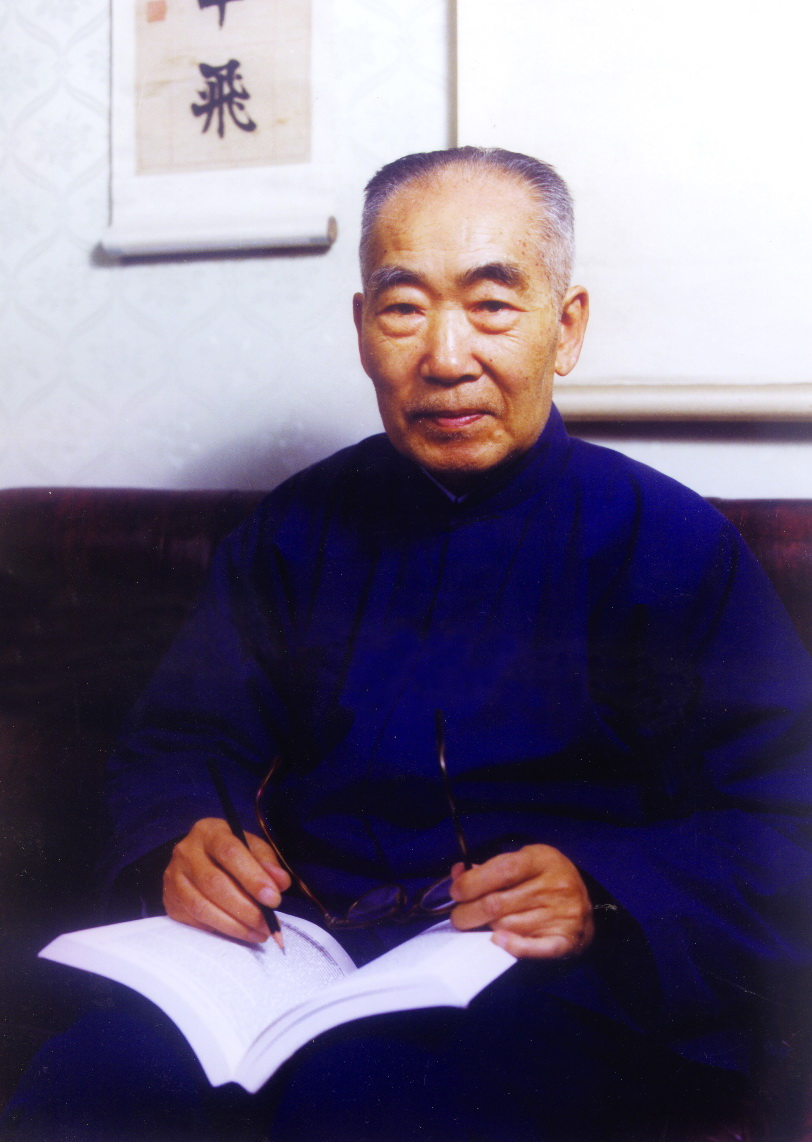
Wu Wenzao (吴文藻)
Lived: 1901-1985
Ethnicity: Han
Hometown: Jiangyin, Jiangsu Province
Area: Sociologist, Ethnologist and Educator
In 1916, he was admitted to Beijing Tsinghua University. In 1923, he went to the United States to study sociology and anthropology successively at Dartmouth College and Columbia University. In 1928, he graduated from Columbia University in the United States with a doctorate in law. After returning to China, he taught at Yenching University and successively served as the Dean of the Department of Sociology and the Dean of the Faculty of Literature. In 1939, he established the Faculty of Sociology at Yunnan University and was in charge as the faculty director. In 1941, he served as Counselor of the Secretary Office of the Supreme National Defense Committee of the Republic of China, specializing in the study of border ethnic groups and religious and educational issues. Since 1953, he had been transferred to the Central Institute for Nationalities. He had successively served as the Director of "Domestic Ethnic Minorities" teaching and research section of the Research Department and the "Ethnography" teaching and research section of the History Department. After 1979, he concurrently served as a consultant for the Chinese Sociological Society, the Ethnological Society, and the Anthropological Society. He used to serve as a member of the Sixth Committee of the Chinese People's Political Consultative Conference and a member of the Central Standing Committee of the Chinese Association for the Promotion of Democracy. In 1981, he served as a member of the Jurisprudence Review Group of the Academic Degrees Committee of the State Council. He served as the editor-in-chief of the Sociology Series and the Sociology Academic Circle. His main works included: Chinese Opium Issues Seen in British Public Opinion and Action (Doctoral Dissertation), Modern French Sociology, Western Influence, and Domestic Development in Chinese Community Studies, New Evolution, etc. Prof. Wu Wenzao advocated the sinicization of sociology and worked hard to advocate community research, and tried to integrate sociology and cultural anthropology, which affected the future direction of Chinese sociology teaching and research to a certain extent. He focused on training talents. Well-known contemporary Chinese sociologists and ethnologists Fei Xiaotong, Lin Yaohua, Li Anzhai, Qu Tongzu, etc., all came from his sect.

Wen You (闻宥)
Lived: 1901-1985
Ethnicity: Han
Hometown: Songjiang, Jiangsu Province
Area: Linguistics, archaeology
After graduating from a primary school in his hometown in 1913, he went to Shanghai Declaration Hall to work and engaged in literary creation due to family difficulties. He joined the later Nanshe. From 1922 to 1926, he taught at the Shanghai Patriotic Women's School Wuren Middle School. From 1926 to 1929, he worked as an editor at the Compilation and Translation Office of the Commercial Press. Since 1929, he has served successively as Associate Professor and Professor of Humanities and History at Guangzhou National Sun Yat-sen University, Professor of Chinese Department of Qingdao National Shandong University; Professor of Chinese Department of Peking Private Yanjing University; and Lecturer of National Peking University Women's College of Liberal Arts, Professor and Director of the Chinese Department of Chengdu National Sichuan University, Professor and Director of the Chinese Department of Kunming National Yunnan University; and Honorary Lecturer of National Southwest Associated University; Professor and Director of the Chinese Department of Chengdu Private West China Union University; Director of the Institute of Chinese Culture, Museum Director and Professor the Department of History of National Sichuan University. After the adjustment of the departments in 1952, he became the professor of the Chinese Department of Sichuan University and the professor of Southwest Institute for Nationalities. In 1955, he was transferred to Central Institute for Nationalities. He used to be a Correspondence Academician of the French Far East Museum, a member of the West German Oriental Society, and a Turkish International Oriental Studies Association member. Prof. Wen You was good at calligraphy, and his work had been published in Contemporary Celebrity Books. He devoted his life to the investigation of Chinese-Tibetan languages and ancient cultural relics. He had pioneered the study of Nom characters, Yi language, Qiang language, and the study of ancient times. His main works included The Organization of Nom Characters and Their Relationship with Chinese Characters, A Preliminary Analysis of Qiang Language in Western Sichuan, and An Illustrated Record of Ancient Bronze Drums. In 2010, the Cultural Relics Publishing House published Wen You Sun Hall Tibetan Bronze Rubbings.
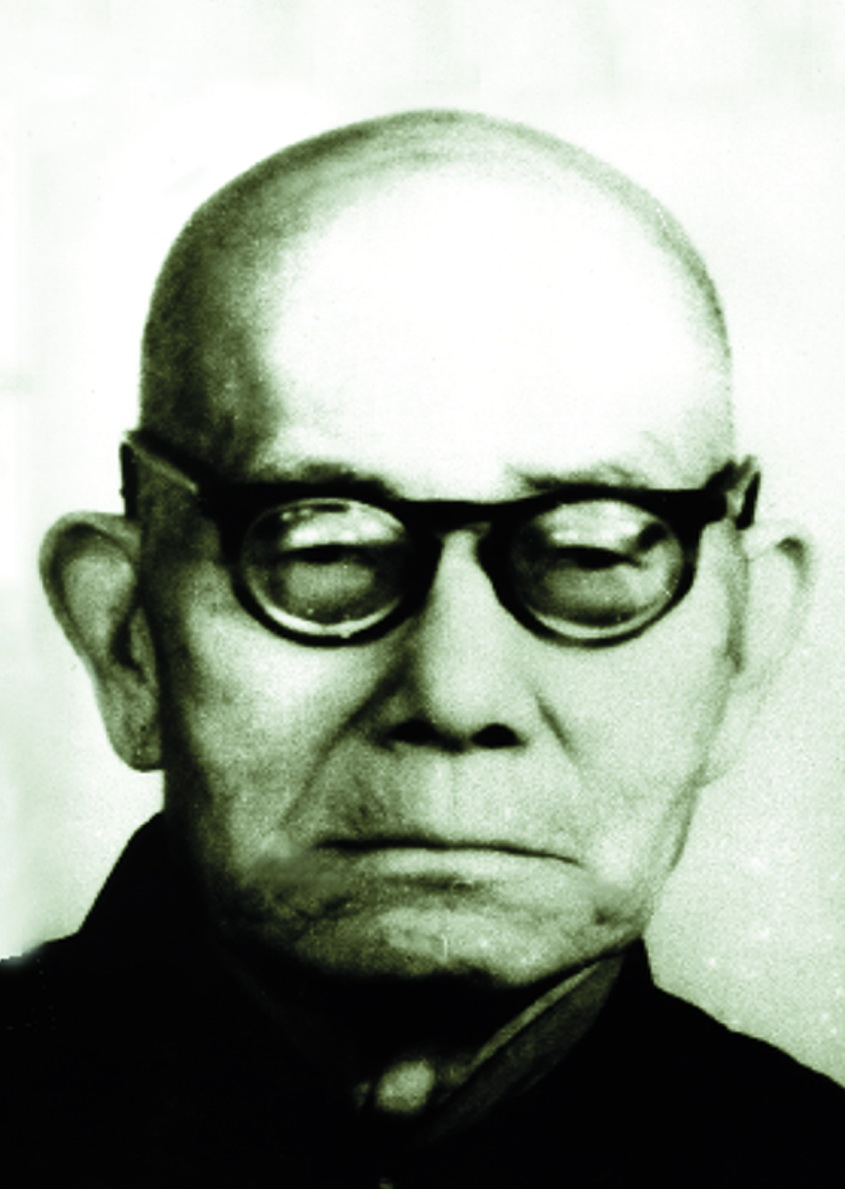
Yu Daoquan (于道泉)
Lived: 1901-1992
Ethnicity: Han
Hometown: Linzi, Shandong Province
Area: Linguist
In 1934, he went to study at the University of Paris, France. In 1938, he was a lecturer at the Oriental College of London University. He returned to China in 1949 and was in charge of a lecturer in the Department of Eastern Languages at Peking University and a professor of Tibetan language at the School of Literature. In 1953, he was transferred to the Faculty of Chinese of the Central Institute for Nationalities, and he had been engaged in the training of Tibetan talents for a long time. His translation work The Love Song of the Sixth Dalai Lama Cangyang Gyatso was the first monograph in the world that introduced Tibetan literature in languages other than Tibetan. In 1951, based on the Lhasa dialect's phonetic system, he designed an effective Tibetan Latinized phonetic scheme. In 1953, he began to preside over the compilation of a Tibetan-Chinese colloquial Lhasa spoken dictionary. After the 1970s, his work's focus had shifted to the study of number pronouns and number phonetic pronouns and the design of Tibetan digital pronouns, which has effectively promoted the development of Tibetan studies.
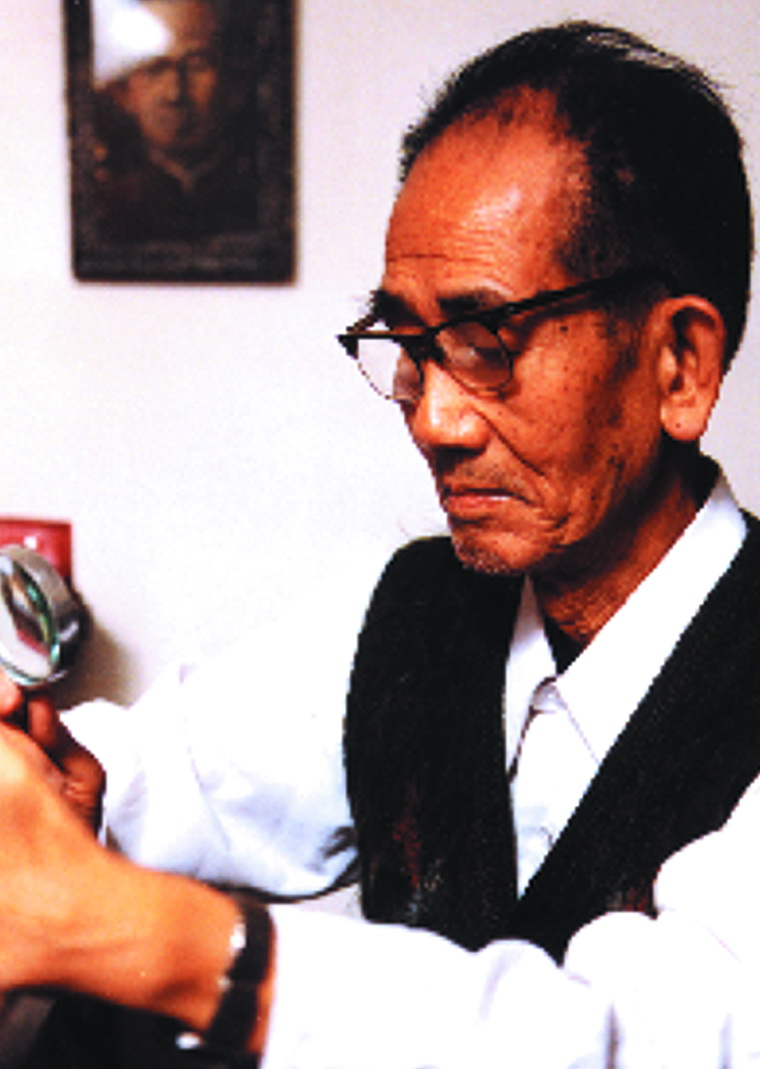
Yang Chengzhi (杨成志)
Lived: 1902-1991
Ethnicity: Han
Hometown: Haifeng, Guangdong Province
Area: Ethnology
He studied at Lingnan University from 1923 to 1927 and was teaching at the Lingnan University Associated High School at the same time. Moreover, during this period, he also taught journalism at the Chinese Women's Institute and edited publications such as Youth of Lingnan University, Thoughts in Lingnan University, and Nan Feng (Southern Wind). In 1927, he was the teaching assistant at Sun Yat-Sen University; in 1928, he was appointed by Sun Yat-Sen University and Central Research Institute to investigate the situation of ethnic minorities in Yunnan. Later, he went to the Greater Liangshan in Sichuan, where the Yi people live, to investigate and study the social structure of slaves and the Yi people's lifestyle, including their customs, language, religious beliefs, and cultural characteristics. From 1932 to 1934, he went to study in France and obtained a higher diploma from the Paris Anthropology Institute and a doctorate in law from the University of Paris. In 1934, he attended the First International Conference on Human Ethnology in London and gave a speech. In the 1930s and 1940s, Prof. Yang Chengzhi served as Professor and Secretary-General of the Research Institute, Director of the Institute of Humanities, Director of the Department of Anthropology, and Director of the Department of Anthropology at Sun Yat-Sen University. He trained the first batch of anthropological backbone researchers for universities in the south. During this period, he also edited the Folklore Quarterly and Ethnology and published works such as People and Culture, Collections of Human Science, Anthropology, and Modern Life. After the founding of the People's Republic of China, he first worked in the Central Ethnic Affairs Commission, and was then transferred to the Central Institute for Nationalities in 1952, and became the first director of the College's Cultural Relics Research Office (the predecessor of the National Museum).

Feng Jiasheng (冯家昇)
Lived: 1904-1970
Ethnicity:
Hometown: Xiaoyi, Shanxi Province
Area: National History
In 1927, he entered Yenching University to study history. After finishing his studies, he went to graduate school. In 1934, he received a master's degree. He has taught in the History Department of Yenching University, Peking University, Northeastern University, and other universities and participated in the compilation of the "Yugong" academic journal edited by Gu Jiegang. In 1937, at the invitation of the Library of Congress in Washington, U.S., he worked as a researcher in the Chinese History Research Office of Columbia University, as a researcher of Liao History, and at the same time studied in the Department of Anthropology at that school. In the spring of 1947, he returned to China and served as a researcher at the Institute of History of Peking Research Institute. After the founding of the People's Republic of China, he served as a researcher at the Institute of Ethnic Studies of the Chinese Academy of Sciences. In 1952, he was transferred to the Research Department of the Central University for Nationalities as a professor. In 1958, he was transferred to the Institute of Ethnic Studies of the Chinese Academy of Sciences as a researcher and deputy director of the Minority Social History Research Office. In 1964, he was elected as the representative of the Third National People's Congress. Mr. Feng Jiasheng mainly authored The Origin of the Liao Dynasty and the Initial Proof of Liao History, which initiated a comprehensive study of Liao History starting from collation. In the United States, he co-authored the book Social History of the Liao Dynasty. Later, he published the monograph Three Types of Errors in Liao History and participated in the proofreading Liao History. He once edited the Compendium of Uyghur Historical Data (Volumes 1 and 2), which has become an important reference book for the study of Uyghur history. He initiated China's research work on Uyghur and Turkic scripts, which received attention and praise at home and abroad.

Chen Zhenduo (陈振铎)
Lived: 1904-1999
Ethnicity: Han
Hometown: Linzi, ShandongProvince
Area: National (Ethnic) Music Educator
In 1928, he was admitted to the Shanghai National Conservatory of Music. In 1929, he was transferred to the Music Department of the National Peking University College of Art. He studied erhu under the famous music master Liu Tianhua. In 1932, he taught in the Music Department of Peking University. He has served as a lecturer in the Music Department of Tianjin Women's Normal University, a professor in Chongqing Qingmuguan National Conservatory of Music, a professor and head of the Orchestra Department of Tianjin Central Conservatory of Music, and a professor and head of the teaching and research section of the Folk Music Department of the Central Conservatory of Music. In 1961, he was transferred to the Art Department of the Central University for Nationalities as a professor. He has been employed successively as a member of the Degree Evaluation Committee of the Central Conservatory of Music, a member of the Academic Committee of the Central University for Nationalities (now MUC), and a member of the Academic Evaluation Committee of the State Council. He devoted himself to the national music scene for 50 years and has achieved gratifying results in performance, creation, teaching, and research. In 1935, he published China's first erhu book, Selected Songs of Nanhu. He compiled and printed Selected Songs of Erhu during the Anti-Japanese War and later completed the monograph Research on Liu Tianhua's Works. In terms of teaching methods, he inherited the educational thoughts of Mr. Liu Tianhua and taught in accordance with his aptitude, and followed good practices. For more than 50 years, he treated students with reason and was known as a good friend. He trained many influential erhu players at home and abroad. Mr. Chen Zhenduo inherited the spirit of Liu Tianhua's reform. In order to popularize the Chinese music erhu, he took the lead in replacing the gong ruler with numbered musical notation. He supported the student Zhang Zirui to conceive improvements for the special metal and screw adjustment bows for the erhu and designed and produced the earliest steel pair-string-octagonal erhu with a round front and back.
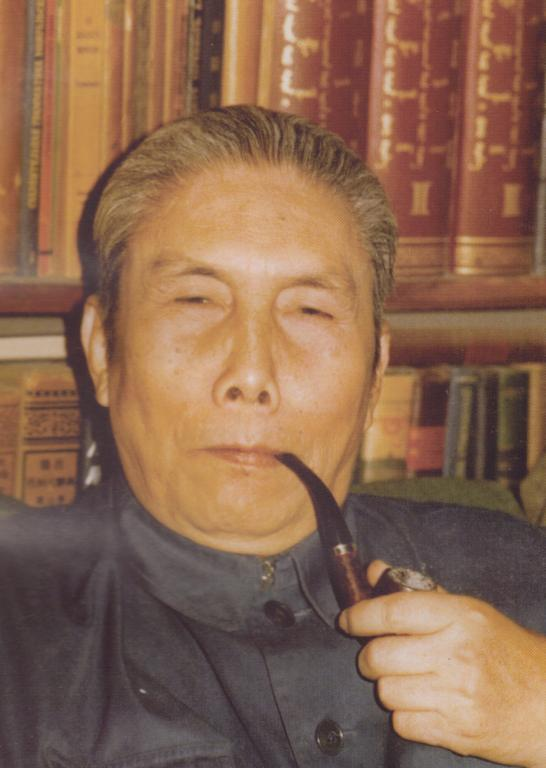
Weng Dujian (翁独健)
Lived: 1906-1986
Ethnicity:
Hometown: Fuqing, Fujian Province
Area: Historian
In 1928, he studied at the History Department of Peking University. He went to study in the United States in 1935 and received a Ph.D. in philosophy from Harvard University in 1938. In the same year, he entered the University of Paris for further studies. In 1939, he returned to China and served successively as a professor at Yunnan University, Peking China University, and Yenching University and the Provost and Acting President of Yenching University. In 1952, he was transferred to the Central Institute for Nationalities and served successively as the research department director, the professor of the history department, and the department head. He served as the director of the Beijing Municipal Bureau of Education, a member of the National Ethnic Affairs Commission, a researcher and deputy director of the Institute of History of the Chinese Academy of Social Sciences, and the Institute of Ethnic Studies. Member of the 3rd, 4th, 5th, and 6th National Committee of the Chinese People's Political Consultative Conference. Mr. Weng Dujian specializes in Yuan history studies, Mongolian history, and northern Chinese nations' history. His works, such as Miscellaneous Research of Orthodox and Code Compilation in the Mongolian and Yuan Dynasties, have received much attention from academic circles at home and abroad. He was elected as a member of the Chinese Yuan History & Mongolian History Research Association, the Ethnic History Society, Chinese History Society, and Vice President of the UNESCO International Central Asian Cultural Research Association. In 1985, he was hired as a member of the editor-in-chief committee of the Encyclopedia of China.
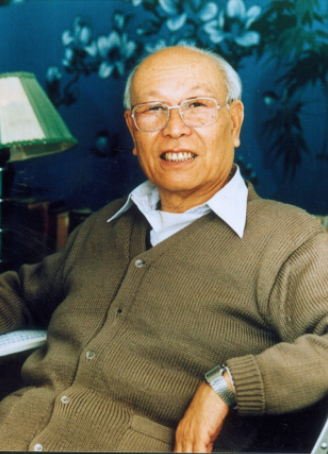
Lin Yaohua (林耀华)
Lived: 1910-2000
Ethnicity:
Hometown: Gutian, Fujian Province
Area: Sociology, anthropology, ethnology
In 1932, he graduated from the Department of Sociology of Beiping Yanjing University and then continued to postgraduate study in the same department. In 1935, he obtained a master's degree in law. In 1937, he went to the Department of Anthropology at Harvard University in the United States for further study and received a Ph.D. He returned to China in 1941 and successively taught in the Department of Sociology of Yunnan University, the Department of Sociology of Chengdu Yenching University, and the Department of Sociology and Department of Ethnology of Peking University. He concurrently served as a researcher at the Institute of Social Studies of the Chinese Academy of Sciences. He participated in the Tibet Science Task Force Leader of the Social Science Group. In 1952, he was transferred to the Central Institute for Nationalities and served as the director of the Tibetology Research Office, the Institute of Ethnic Studies director, and the director of the Department of Ethnology. Elected as Vice President of the Chinese Sociological Association in 1979, Vice President of the Chinese Society for Ethnography in 1980, and concurrently a member of the Jurisprudence Group of the Academic Degrees Committee of the State Council, Correspondence Editor of the English "Contemporary Anthropology" magazine, International Honorary Advisor of the American Biographical Institute and more. Mr. Lin Yaohua's academic emphasis is on ethnological and sociological studies of primitive society and the social form and structure of Chinese ethnic minorities. His representative works mainly include Golden Wing (English version), Liangshan Yijia, Primitive Social History, Ethnological Research, General Ethnology (editor), etc. Among them, The History of Primitive Society won three awards, including the "National Excellent Textbook for Colleges and Universities" in 1988. Since 1932, he taught for nearly 60 years and trained a group of teaching and research personnel, making important contributions to the development of Chinese sociology and ethnology.

Fei Xiaotong (费孝通)
Lived: 1910-2005
Ethnicity: Han
Hometown: Wujiang, Jiangsu Province
Area: Sociology, Anthropology, Ethnology, Social Activism
He graduated from Yenching University in 1933 with a bachelor's degree in law. In 1935, he graduated from the Department of Sociology and Anthropology of Tsinghua University with a master's degree. In 1938, he graduated from the London School of Economics and Political Science with a doctorate in philosophy. He returned to China in 1938 and served as a professor at Yunnan University and Tsinghua University. From 1952, he served as the Deputy Dean of the Central University for Nationalities, and in 1956 he also served as a professor of history. He served successively as deputy director of the Institute of Ethnic Studies of the Chinese Academy of Social Sciences, director of the Institute of Sociology, member of the Academic Degrees Committee of the State Council, vice chairman of the Standing Committee of the National People's Congress, and vice chairman of the National Committee of the Chinese People's Political Consultative Conference. Mr. Fei Xiaotong made outstanding contributions to the construction of Chinese sociology and anthropology. He was awarded the Malinowski Honorary Award by the International Anthropological Society and the Haxuli Medal of the Royal Anthropological Society. He became the first Chinese scholar to receive this honor. His representative works include: Countryside China, Jiangcun Economy, Small Towns, Big Issues, and he was the chief editor of The Chinese Nation's Pluralistic Integration Patterns and Introduction to Sociology, etc.
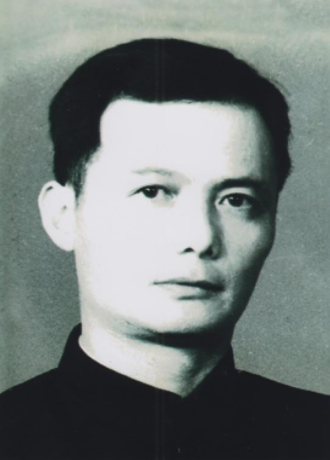
Fu Maoji (傅懋勣)
Lived: 1911-1988
Ethnicity: Han
Hometown: Liaocheng, Shandong Province
Area: Linguistics
He graduated from the Chinese Literature Department of Peking University in 1939. He was a lecturer and associate professor at Huazhong University and West China Union University and a professor and head of the Department of Chinese at Huazhong University. In 1948, he went to Cambridge University to study linguistics. In 1950, he received a doctorate degree from Cambridge University in England. In 1951, he worked at the Institute of Languages of the Chinese Academy of Sciences (now the Institute of Languages of the Chinese Academy of Social Sciences). He served as a researcher of the Institute of Languages, Deputy Director and Researcher of the Institute of Ethnic Languages, Deputy Director and Researcher of the Institute of Ethnic Languages, and a member of the All-China Federation of Literary and Art Circles. He was a member of the Chinese Character Reform Committee, editor-in-chief of the magazine "Minority Language," and President of the Association of the Chinese Ethnic Language Association, and President of the Chinese Society of Ancient Chinese Characters, etc. Mr. Fu Maoji was mainly engaged in the research of Chinese minority languages. From 1952 to 1956, he taught phonetics in the Chinese Department of the Central University for Nationalities. He trained famous linguistic experts and scholars such as Dai Qingsha, Hu Tan, and Chen Qiguang. In the early 1940s, his "Research on Weixi Moxie Languages" was the earliest academic monograph to study the Naxi language in Yunnan, China, in a more comprehensive and in-depth yet self-contained systematic manner. Besides, he researched the Yi language, Yi language, Qiang language, Dai language, etc.
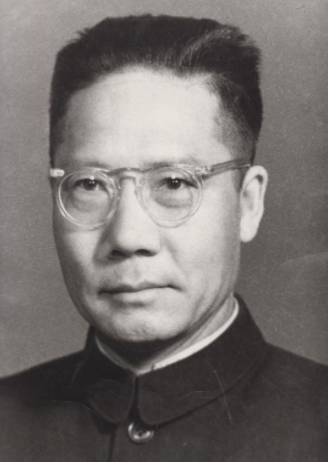
Chen Shu (陈述)
Lived: 1911-1992
Ethnicity: Han
Hometown: Leting, Hebei Province
Area: History
In 1929, he was admitted to the History Department of Beiping Normal University, under the famous historian Chen Yuan's tutelage. After graduating from the university in 1935, he joined the Institute of History of Academia Sinica. From 1940, he served as a professor at Northeastern University, Jinan University, National Peking Research Institute, Fudan University, Sino-French University, Yanjing University, and Beijing Normal University. In 1952, he was transferred to the Research Department of the Central University for Nationalities as a professor and library curator. In 1957, he served as a researcher at the Institute of Ethnic Studies of the Chinese Academy of Social Sciences, the China Liaojin History Society president, the president of the China Liaojin Qidan Jurchen History Society, and the editor-in-chief of The Collected Works of Liaojin History. His representative works include Drafts of Demonstration on Khitan History, Drafts on Khitan Social History, Five Kinds of Jin History, etc.
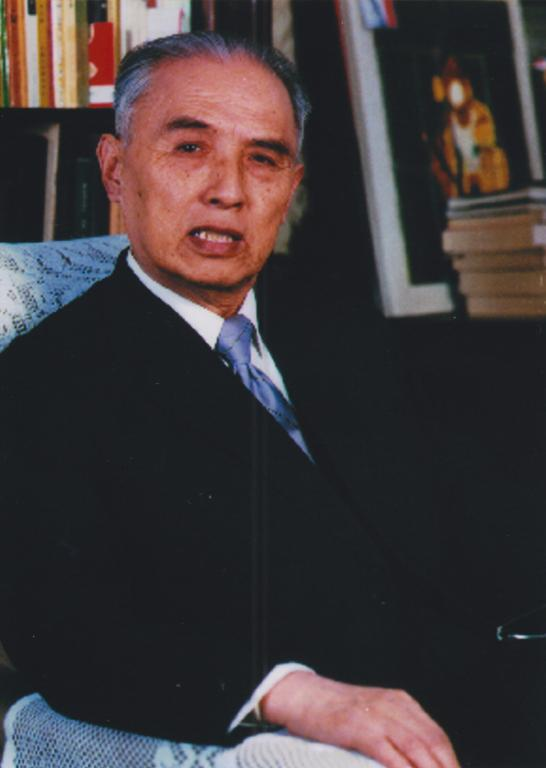
Ma Xueliang (马学良)
Lived: 1913-1999
Ethnicity: Han
Hometown: Rongcheng, Shandong Province
Area: Linguistics
In 1934, he entered the Chinese Department of Peking University to study. After receiving a bachelor's degree in 1938, he entered the Institute of Humanities of Peking University for further studies. In 1941, he received a master's degree. From 1941 to 1949, he served as an Assistant Researcher at the Institute of History and Language of the Academia Sinica. From 1943 to 1949, he served as an Associate Professor at Nanjing Central University. From 1949 to 1953, he served as an Associate Professor at the Department of Oriental Languages and Literatures of Peking University. Language professor and department head. He was the founder, doctoral supervisor, and tenured professor of the ethnic language and literature discipline of Minzu University of China. His "Sani Yi Language Research" was the first academic work to examine the pronunciation, vocabulary, and grammar of Yi language more comprehensively and systematically. He was also the author of "Annotation to Yi Wen Zuozhai Jing," "A Collection of Research on the Etiquette and Customs of the Yi People in Yunnan," etc. In the early 1980s, he also edited and published "Introduction to Linguistics." This book contains the essence of "Introduction to Linguistics," edited by Peking University since the early 1960s, and exemplifies English and Chinese languages. What's more valuable is that it borrows from rich examples of ethnic minority languages that were little known in the past to illustrate linguistics principles and refresh people's lives. He devoted himself to the education of ethnic minority languages and literature for a long time and cultivated many talents to develop ethnic languages and literature.
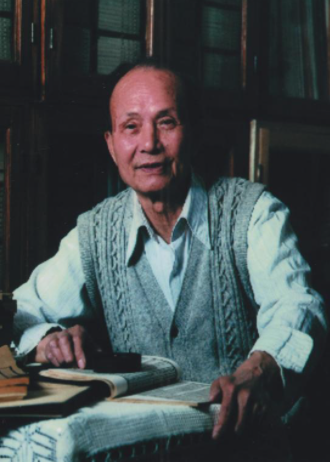
Wang Zhonghan (王锺翰)
Lived: 1913-2007
Ethnicity: Han
Hometown: Dongan, Hunan Province
Area: National History
He graduated from Changsha Yali Middle School in 1934 and obtained a bachelor's degree in history and a master's degree in history from Peking Yanjing University in 1938 and 1940, respectively. After graduation, he stayed on to teach, and in 1943, he worked as a lecturer in the History Department of Chengdu Yanjing University. In 1946, he went to the Harvard University Graduate School for two years of studies. After returning to China, he served as an Associate Professor in the Department of History at Yenching University and concurrently as the acting Deputy Director of the Cited Compilation Division of the Harvard Yenching Institute. In 1952, he was transferred to the Central Institute for Nationalities (now MUC) to teach. Since 1956, he was a professor in the Department of History. He was engaged in the instruction and scientific research of history, Qing history, and Manchu history. He served as a professor, doctoral tutor, and tenured professor of the History Department and the Institute of Ethnic History of Minzu University of China. He concurrently served as the Honorary Director of the Department of History, the Director of the Institute of Manchu Studies, and a Chinese Society Part-time researcher of the Institute of Ethnic Studies of the Academy of Sciences, consultant of the Beijing Historical Society, and consultant of the Chinese Society of Ethnic History. He was proficient in English, Latin, Russian, Japanese, and Manchu. His famous historical works include Miscellaneous Research on Qing History, New Research on Qing History, Renewed Research on Qing History, Research on Qing History, and Replenishment on Qing History have been recognized by Chinese and foreign historians. He was known as the "Wang Wu Kao."
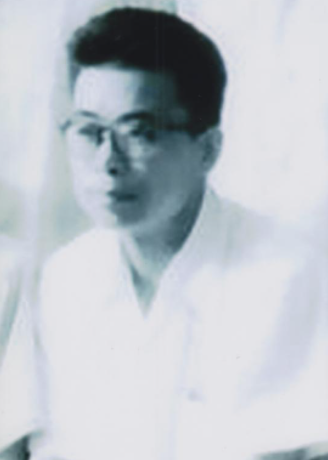
Mr. Fu Lehuan (傅乐焕)
Lived: 1913-1966
Ethnicity: Han
Hometown: Liaocheng, Shandong Province
Area: Ethnic History
He was admitted to the History Department of Peking University in 1932 and received a bachelor's degree in history in 1936. In 1937, he worked at the Institute of History and Language of Academia Sinica. In 1947, he went to the Oriental College of the University of London for further studies and obtained his doctorate in 1950. From 1950 to 1951, he was a researcher at the Institute of Archaeology of the Chinese Academy of Sciences. After being transferred to the Central Institute of Nationalities (now MUC) in 1952, he worked in the Research Department and the School of History. Then he served as the Deputy Dean of the School of History (1956-1966) and the Vice-chairperson of the school's Labor Union. He also served as a researcher and academic committee member of the Institute of History of the Chinese Academy of Sciences. He did work on the Daur people and other ethnic minorities pertaining to ethnic identification and social and historical investigations. He was long engaged in the teaching and research of northern ethnic history, emphasizing the study of Liao and Jin history. In 2008, the sister of Professor Fu Lehuan initiated the establishment of the "Central University for Nationalities Chunhui, Hua Fu & Lehuan History Scholarship." So far, dozens of students from low-income families have enjoyed the scholarship.

Chen Yongling (陈永龄)
Lived: 1918-2011
Ethnicity: Han
Hometown: Huaiyin, Jiangsu Province
Area: Ethnology
In 1947, he graduated from the Sociology Department of Yenching University with a master's degree in law. He served as a faculty member of Xinjiang University in the Department of Sociology and as an Associate Professor of the Department of Ethnology at Yenching University. In 1952, he was transferred to the Central Institute for Nationalities and served as the Director of the Department of History and Ethnography and Deputy Director and Deputy Director of the Institute of Ethnic Studies. He concurrently served as a consultant for the Chinese Society of Sociology and Advisor of the Chinese Society of Ethnic History. He was vice President and Advisor of the Beijing Society of Sociology. He was a member of the Academic Committee of the Chinese Minority Culture and Art Foundation, an Academic Advisory Advisor of the Humanities Literature Information Center of the Central Institute of National Education of the State Education Commission, a member of the International Committee of Film and Television Anthropology and an associate Film and Television editor for Anthropology magazine. In 1980, he was a visiting research scholar at the University of Regina in Canada and taught the course "Chinese Minorities and Ethnic Policy." From 1988 to 1990, as a Fulbright visiting scholar in the United States, he successively taught courses such as "The Practice of Chinese Ethnology" and "China's Inner Asian Nation" at the University of Washington. He engaged in modern history research regarding Xinjiang at Stanford University. He participated in the World Sociological Society, the Harvard University Islamic International Forum, the Indian Statistical Society, and many other international academic conferences. Mr. Chen Yongling once served as the Encyclopedia of China. He also served as the Editor-in-Chief and Division Chief Editor of the Ethnic Volume of the National Encyclopedia, the Ethic Dictionary's chief editor. His main works include The Essays on Ethnology, Society under the Jiarong Chieftain System of Li County, Chinese Ethnology in the Early 20th Century, and so on.

Song Shuhua (宋蜀华)
Lived: 1923-2004
Ethnicity: Han
Hometown: Chengdu, Sichuan Province
Area: Ethnology
In 1946, he graduated from the Sociology Department of Yenching University with a bachelor's degree in law. In 1947, he was admitted to the Graduate School of the University of Sydney, Australia, majoring in anthropology, and obtained a master's degree in law. He returned to China in 1949 and served as an Assistant Researcher at the Museum of Archaeology and Ethnology of West China Union University in Chengdu. Since 1952, he was engaged in teaching and research work at the Central University for Nationalities (now MUC). From 1981 to 1986, he served as the Deputy Dean of the Central University for Nationalities. In 1985, he was hired as a member of the Disciplinary Review Group of the Academic Degrees Committee of the State Council. In 1988, he was elected as an honorary member of the Royal Anthropological Society. He was both the president and honorary president of the Chinese Society for Ethnology. In 1984, he was elected as a member of the United Nations Committee on the Elimination of Racial Discrimination. He made important contributions to implementing the International Convention on the Elimination of All Racial Discrimination. The editor-in-chief's works include "Introduction to the Chinese Nation," "Ethnology and Modernization," "Theory and Method of Ethnology" (co-authored with Bai Zhensheng), etc.

Li Sen (李森)
Lived: 1923-1994
Ethnicity: Han
Hometown: Hengshui, Hebei Province
Area: Linguistics
At the end of 1941, he graduated from Xinjiang Normal University (that is, Xinjiang Normal University's predecessor) and stayed on to serve as an instructor. Starting from December 1946, he has served as editor of the Xinjiang Provincial Department of Education. From May 1947 to January 1949, he served as the editor of the Nanjing National Frontier Culture and Education Center and the Northwest Cultural Construction Association editor-in-chief. Since September 1947, he has served as a lecturer, Associate Professor, and Professor at Central University (now called Nanjing University), Peking University, and Central Institute for Nationalities (now MUC). In September 1949, he established the Uyghur language major of the Oriental Languages and Literature Department of Peking University. In October 1952, he created the Turkic language teaching and research group (office) of the Chinese Language Department of the Central University for Nationalities (now MUC) as the teaching and research group leader. In 1955 and 1956, he participated in the investigation and research of nine languages related to the Turkic language in Xinjiang, Gansu, Qinghai, and other provinces and regions and served as deputy team captain twice. After 1983, he was responsible for the work of the North Section Workroom of the Language Institute of the Central University for the Nationalities. He used to be an honorary member of the Chinese Ethnic Ancient Characters Research Association, a Director of Chinese Ethnic Linguistics, and a Chinese Turkic Language Research Association consultant. He was long devoted to the teaching and research of the Turkic languages of the Altaic language family. He focused on fieldwork throughout his life and was one of the pioneers of the study of Turkic languages in China.
All Information in Chinese: https://www.muc.edu.cn/gk/xsml.htm

